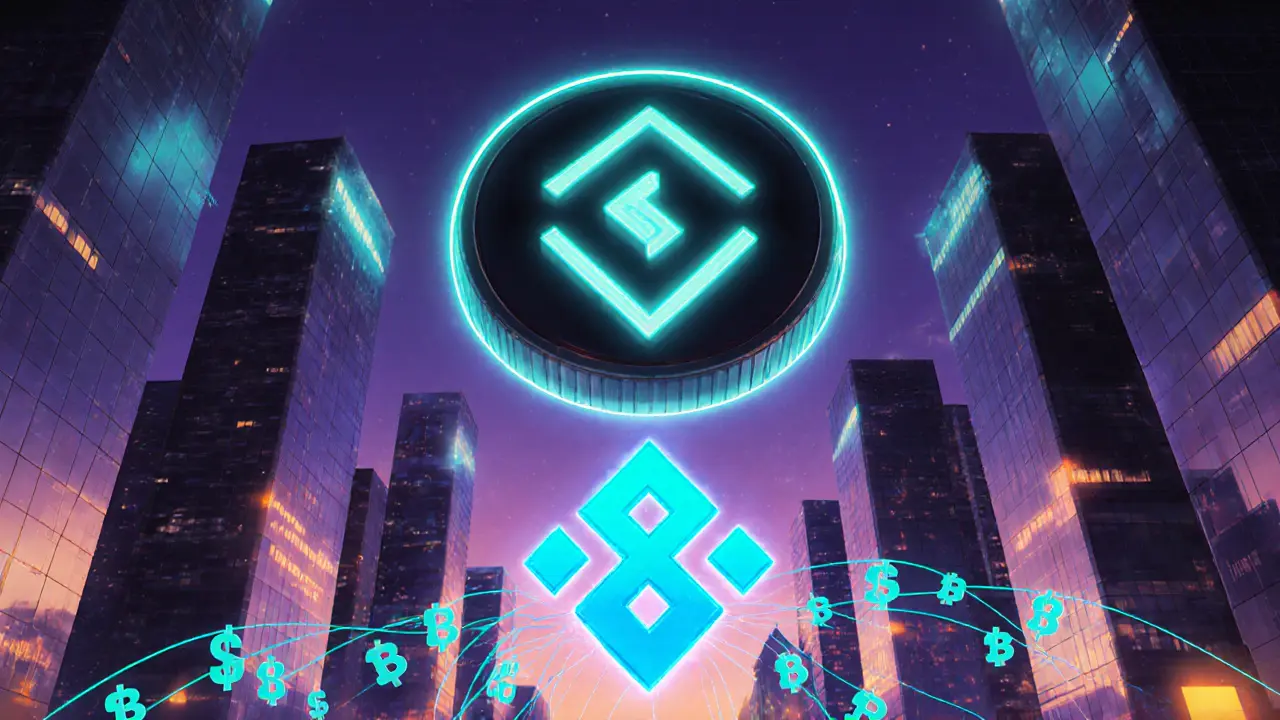Binance Smart Chain (BSC) – Your Hub for DeFi, Airdrops & Reviews
When working with Binance Smart Chain, a high‑performance blockchain built by Binance that runs in parallel with Binance Chain and fully supports the Ethereum Virtual Machine. Also known as BSC, it delivers fast block times, low transaction fees, and a thriving ecosystem of dApps, tokens and services. Binance Smart Chain encompasses smart contracts, powers decentralized exchanges and enables token airdrops, making it a go‑to platform for developers and traders alike.
Key components that make BSC a DeFi powerhouse
A Decentralized Exchange, or DEX, is any on‑chain marketplace where users trade tokens directly from their wallets. On BSC, DEXs like PancakeSwap, ApeSwap and others benefit from sub‑second confirmation and fees that are a fraction of Ethereum’s. This environment encourages liquidity providers to earn rewards while keeping trading costs low for everyday users. The DEX model on BSC fuels the broader DeFi ecosystem by providing the necessary liquidity bridges for yield farming, lending and synthetic assets.
At the heart of every DEX and DeFi app lies a Smart Contract, a self‑executing piece of code that runs on the blockchain. BSC’s EVM compatibility means developers can port existing Ethereum contracts with minimal changes, preserving logic while gaining faster finality and cheaper gas. These contracts automate everything—from token swaps and staking pools to governance votes—reducing the need for trusted intermediaries and opening the door for innovative financial products.
One of the most community‑friendly features of BSC is its support for Token Airdrop, where projects distribute free tokens to holders or participants to jump‑start network adoption. Recent examples include the ASK token from Permission.io, the OKFLY token on Okex Fly, and various NFT‑linked drops like HashLand’s New Era collection. Airdrops on BSC are typically simple: connect a wallet, meet a snapshot requirement, and claim through a web interface. They serve both marketing and decentralization goals, giving users a taste of new ecosystems without upfront cost.
While BSC offers technical advantages, projects operating on it must navigate an evolving Crypto Regulation landscape. Global trends—from Brazil’s central‑bank crypto policy to India’s adoption of the OECD reporting framework—affect how BSC tokens are classified, taxed and listed on exchanges. Compliance considerations include anti‑money‑laundering checks, stablecoin caps and licensing requirements in jurisdictions like the Philippines. Understanding these rules helps developers design tokenomics that stay on the right side of regulators and gives investors confidence that a project can sustain long‑term growth.
Below you’ll find a curated set of articles that dig deeper into each of these areas: detailed exchange reviews, step‑by‑step airdrop guides, smart‑contract security tips, and the latest regulatory analysis. Whether you’re a trader looking for low‑fee swaps, a developer evaluating BSC for a new dApp, or a token holder curious about upcoming drops, the collection offers practical insights to help you make informed decisions on the Binance Smart Chain ecosystem.

WINGS Jetswap Airdrop Details: How to Claim, Tokenomics & Platform Review

FaraLand (FARA) Community Airdrop Details & How to Stay Informed

Lucidum Coin (LUCIC) Explained: Specs, Price, and Future Outlook
